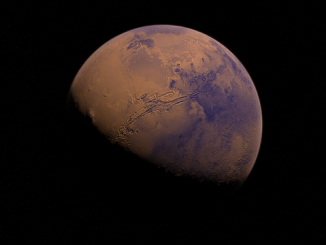
Elon Musk’s recent comments at the Future Investment Initiative in Riyadh, Saudi Arabia, have ignited discussions across multiple fields, from robotics to space travel, painting a picture of a future deeply intertwined with technology. Musk, known for his forward-thinking and sometimes controversial predictions, delved into what the next couple of decades might hold, with a particular focus on AI and robotics.
Musk’s vision for the future includes a world where humanoid robots could outnumber humans. By 2040, he predicts there will be at least 10 billion of these robots, each priced between $20,000 and $25,000.
This forecast isn’t just about numbers; it’s about a shift in how society functions. With robots capable of performing an array of tasks from domestic chores to industrial work, labor markets would see a transformation. The implications are vast, from potential job displacement to the creation of new job sectors focused on robot maintenance, programming, and ethical oversight.
However, Musk’s vision isn’t without its shadows. He openly discussed the existential risks of AI, highlighting a concern that has become increasingly central in tech discussions.
AI’s potential to exceed human intelligence poses significant ethical and safety challenges. Musk’s response to these concerns has been proactive, with the establishment of XAI, aimed at developing AI that aligns with human values and benefits humanity. This move underscores a broader industry push towards ethical AI development, focusing not just on what AI can do but on what it should do.
The conversation extended beyond AI into the realms of transportation and space travel. Musk’s assertion about the future of driving—that all cars will be autonomous and significantly safer than human-driven vehicles—points towards a future where road safety might leap forward, but also where traditional driving skills could become obsolete. His optimism about space travel, predicting starship launches to Mars within two years, reflects his ongoing commitment through SpaceX to make humanity multi-planetary, a vision that combines ambition with the stark realities of space exploration costs and technology.
Musk’s insights into global AI development suggest a future where AI isn’t just a tool of the tech giants but a strategic asset for nations. This could lead to a new form of geopolitical tension or collaboration, depending on how countries navigate the complexities of AI development and usage.
Perhaps one of the most poignant points Musk touched upon was the demographic challenge facing humanity. His concern about declining birth rates and the future of the human species introduces a different kind of existential question that intertwines with technological advancements. It suggests that while technology can innovate and perhaps even replace human labor in many aspects, it cannot inherently solve the issue of human reproduction or the societal will to expand.
Musk’s discussions at the conference weave together optimism for technological progress with a call for mindful development.
As society marches towards this robot-inhabited future, the dialogue around AI’s role, ethical considerations, and human priorities will undoubtedly intensify. This future, as per Musk’s vision, will require not only technological innovation but also a rethinking of human values and societal structures to accommodate or direct the evolution that AI and robotics will bring.
h/t Arabnews
- Bulenox: Get 45% to 91% OFF ... Use Discount Code: UNO
- Risk Our Money Not Yours | Get 50% to 90% OFF ... Use Discount Code: MMBVBKSM
Disclaimer: This page contains affiliate links. If you choose to make a purchase after clicking a link, we may receive a commission at no additional cost to you. Thank you for your support!




Leave a Reply